Hormones
All information about "Hormones" and the related magazine articles can be found here.
Our articles are written clearly and link to scientific studies where relevant. This is how we meet our own standards: we regularly deliver new, high-quality content for you—free of charge, no sign-up required, with the highest possible benefit to you.
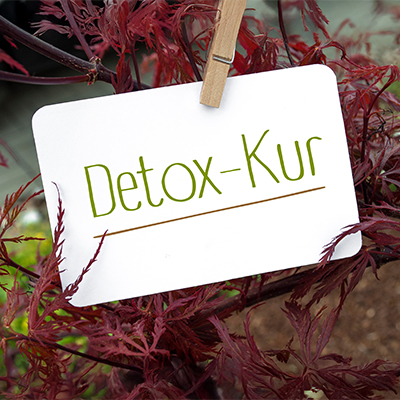
Detox cure with L-arginine: Detoxify & recharge your energy
Find out how L-arginine supports your detoxification, boosts your metabolism and improves your athletic performance.
With a 5-day detox plan, you can cleanse your body in a targeted manner, promote blood circulation and increase your well-being. For more energy and an all-round good feeling!

Goodbye winter skin: Radiant skin with biotin, hyaluronic acid & omega-3
Discover the best nutrients for supple and resilient skin in the cold season.
Biotin promotes skin renewal, hyaluronic acid provides deep moisture and omega-3 strengthens the skin's protective barrier. Find out how you can optimally care for your skin and enjoy the winter with a radiant complexion!

Support hormonal balance in spring naturally with monk's pepper and vitamin B6
For a stable cycle and greater well-being
Spring brings change - also for the hormone balance. Monk's pepper and vitamin B6 can help to alleviate PMS symptoms and regulate the menstrual cycle. Discover natural ways for more balance and well-being!

Radiant skin in spring with zinc and OPC
Support skin renewal and bring back the natural glow
Now that spring is here, your skin needs new energy. Find out how you can improve the appearance of your skin with targeted care, zinc and OPC - for a fresh, radiant complexion in spring. Find out more now!

Winter salad with chia: Superfood for the cold season
Discover delicious and nutritious winter salad recipes with chia seeds, turmeric and fresh winter vegetables.
Chia provides valuable omega-3 fatty acids and fiber, while crunchy ingredients ensure enjoyment and variety. Be inspired and enjoy healthy, delicious salads in winter!
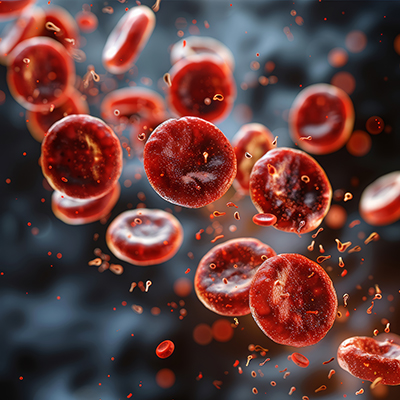
More oxygen, more energy: Iron and vitamin C as a spring turbo
Are you already feeling the spring, but not yet at full power?
Maybe your body is missing just the right combination of iron and vitamin C! Find out why these two nutrients can increase your blood oxygen saturation - and how you can regain your vitality in no time at all. Leave fatigue behind and start the warm season with fresh energy!

Activate metabolism for more energy with L-carnitine & omega-3
How to keep your body active without dieting stress
Spring is calling, and with it comes the desire for more energy and a fit body. L-carnitine and omega-3 fatty acids can gently support your metabolism by boosting fat burning and reducing oxidative stress. Find out why now is the perfect time to give your system a boost!

Support for Picky Eaters
When children's picky eating behavior endangers the nutrient supply
Does your child consistently refuse vegetables and only accepts a handful of foods? Here you can find out what is behind the so-called “picky eater syndrome”, why vitamin C is so essential for children's development and which tricks help to defuse picky eating behavior without pressure.
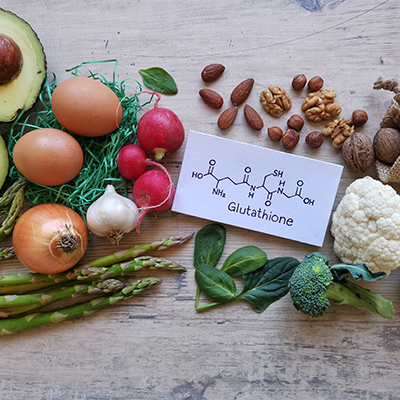
Liver detox with L-glutathione: fresh energy for spring!
Gentle detoxification instead of a crash cure - how L-glutathione supports the liver
The liver filters toxins out of the body and optimally utilizes nutrients. But how can you strengthen it naturally without going on extreme detox cures? Discover here what glutathione has to do with the liver and which simple home remedies can help with “spring cleaning” from the inside.

Winter cabbage & iron: Powerful nutrients for the cold season
Find out how winter cabbage, vitamin C and iron-rich foods support your health and provide your body with optimum care.
Winter cabbage provides valuable iron, which is absorbed even better with vitamin C. Discover delicious recipes and nutrition tips to keep you fit and full of energy throughout the winter!

Protection for your mucous membranes with vitamin B3 (niacin)
Cold air outside, dry heating air inside - this can put a strain on mucous membranes
Find out how micronutrients such as niacin (vitamin B3) can help to support the natural barrier function of the mucous membranes and effectively counteract dryness. An adequate supply of vitamin B3 can help to maintain the well-being of your skin and mucous membranes during the cold season.

Sleeping problems in winter? How magnesium supports your sleep!
How magnesium can contribute to a relaxed night
Winter not only brings cold temperatures, but often also restless nights. Many people toss and turn in bed, struggle with muscle tension or wake up tired in the morning despite getting enough sleep. Magnesium is an essential nutrient that plays a role in muscle relaxation and the sleep-wake rhythm. In this article, you will find out which magnesium supplements are suitable for the evening hours and how you can promote a restful night's sleep with simple routines.

More energy in winter: Ashwagandha as natural support
How the adaptogen can help alleviate the winter blues.
The dark season can not only dampen your mood, but also cause persistent tiredness and listlessness. When energy is lacking and exhaustion remains even after a good night's sleep, the right support for body and mind may be lacking. Ashwagandha is a traditional adaptogen that can help promote inner calm and stabilize the sleep-wake cycle. Find out how you can support your well-being in winter with simple measures and a targeted supply of nutrients.

Constant tiredness despite sleep? How vitamin B complex gives you new energy
More energy, better concentration and less fatigue - this is how B vitamins support your body in winter.
Do you know the feeling of waking up completely exhausted in the morning, even though you've actually had enough sleep? Winter fatigue often robs us of energy, especially in the darker months of the year. The good news is that your body can do more than you think - it just needs the right stimuli! Find out how a vitamin B complex can help you reduce fatigue, boost concentration and get through the winter with more energy. Read now how you can specifically support your energy metabolism!

Strengthen your family with a vitamin boost in winter
Little sunlight, fluctuating temperatures and waves of colds challenge the immune system. Find out how you can get through the cold season healthy and full of energy with vitamin C!
Find out which symptoms indicate a vitamin C deficiency, which foods are real vitamin C bombs and how you can easily integrate your daily intake into your everyday life. Whether for parents, children or older people - with the right nutrients, the whole family can stay strong!

Frankincense: the versatile resin of nature
Discover the history, applications and valuable ingredients of this traditional natural wonder.
Frankincense has inspired people for thousands of years with its fragrance and versatile applications. Whether in ceremonies or as a potential remedy - find out what makes this special resin so unique.

Hashimoto's thyroiditis: Understand, recognize, treat
Find out all about the causes, symptoms and possible treatment approaches for the most common thyroid disease.
Hashimoto's thyroiditis is the most common autoimmune disease of the thyroid gland. Find out how the disease develops, what symptoms can occur and what treatment options are available.

Beriberi: the underestimated consequence of a vitamin B1 deficiency
Find out how beriberi disease manifests itself, what causes it and how you can prevent a thiamine deficiency.
Beriberi is caused by a lack of vitamin B1 (thiamine) and can have serious consequences for the body. Read about the symptoms, how the disease is treated and how you can prevent it.

Polysaccharides: The invisible powerhouses for your diet
Find out how these complex carbohydrates support your health and what benefits they can offer the body.
Polysaccharides are complex carbohydrates that are found in many foods. Discover what role these polysaccharides play in our diet and what functions they fulfill in the body.

Glucosamine: a natural building block for your joints
Find out how glucosamine can help maintain joint structure.
Glucosamine is a natural component of our body and plays a central role in joint health. In this article, you will learn how it can support your joints and what you should keep in mind when taking it.
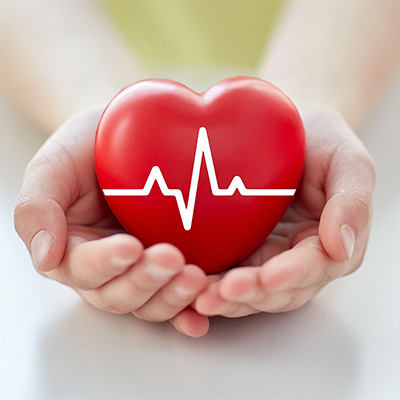
The cardiovascular system: your engine for health and energy
Discover how your cardiovascular system ensures that nutrients and oxygen reach every cell every day – and why it is so important to keep it healthy.
The cardiovascular system is our body's vital transportation system. It delivers oxygen and nutrients to every cell, keeping us moving every day. Learn how it works and why keeping it healthy is so important.

Micronutrients: small building blocks – big impact on your health
Find out how essential micronutrients can support your body and why they are indispensable, especially in times of stress and an unbalanced diet.
In today's hectic world, a balanced diet and vital substances often take a back seat. However, micronutrients – such as vitamins, minerals and trace elements – are essential for your health. Find out how these little helpers have a big impact and why they are indispensable in your everyday life.

Inflammation in the body: a protective mechanism with risks
Find out how inflammation protects the body and when it can become a health risk. Discover tips for helping your body to deal with inflammation.
Inflammation is the body's natural response to harmful influences. It protects us, but it can also become chronic and pose a health risk. Learn more about the balance between protection and risk and how you can help your body stay healthy.
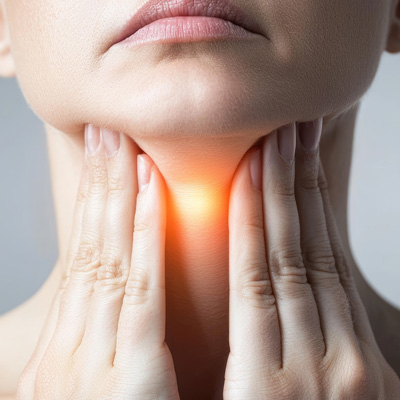
Hyperthyroidism: When the body gets out of balance
Discover the signs of an overactive thyroid and learn how it can affect physical and emotional balance.
An overactive thyroid can throw many bodily processes out of whack, causing everything from constant restlessness to severe mood swings. Learn how to recognize the signs of an overactive thyroid and the steps you can take to get it under control.
All about Hormones: Your Key to a Balanced Life
Have you ever wondered why you sometimes feel energised and focused, while other days you are tired and irritable? The answer often lies in the complex workings of our hormones. They work in the background and influence our organs and our well-being. In our guide to hormones – the key to a balanced life – you will learn how these invisible regulators shape your everyday life and how you can optimise your hormonal balance to get the best out of every day.
What role do hormones play in the human body?
The human hormone system has a very complex structure. The most important hormones play a central role in controlling and regulating a variety of vital bodily functions: These chemical messengers are produced by various endocrine glands (hormone glands) and released into the bloodstream to interact with specific target cells in the body and achieve a specific effect.
Through these interactions, the important neurotransmitters influence a variety of processes, including body growth and development, metabolic functions, reproduction, mood and responses to stress [9]. They also help to adjust the body to external and internal changes and maintain a homeostatic balance [9]. In short, the hormonal system is crucial for maintaining a healthy and functioning organism.
How are hormones produced and regulated?
Various hormones regulate our metabolism, body temperature, salt and water balance, circulation, behaviour and much more [1]. But how does the body know which different hormones it should produce in order to be in balance? Hormones are produced by hormone glands (endocrine glands). These glands, such as the thyroid, adrenal glands and pancreas, are part of the endocrine system and are responsible for synthesising and releasing specific hormones. The production and release of our own hormones occurs in response to complex feedback mechanisms that are influenced by various factors such as the nervous system, other hormones in the body and external environmental factors [4].
This regulation ensures that hormone levels remain within an optimal range to support the body's functions. So-called regulatory circuits control the production of most hormones. The various endocrine glands stimulate or inhibit each other [7]. Hormones can also act on their own gland of origin or a higher-level gland and influence the quantity of hormones. Many hormones of the hypothalamus are also regulated with the help of such ‘feedback loops’, in which the amount of a hormone that has already been produced promotes or curbs its own production. The hypothalamus is a part of the brain that plays an important role in controlling the endocrine system, producing hormones that stimulate or inhibit the pituitary gland to release other hormones [7].
What are the different types of hormones?
There are different types of hormones in the body, including steroid hormones, peptide hormones, amino acid derivatives and thyroid hormones [9]. These are produced by various endocrine glands (hormonal glands) and tissues and regulate a variety of physiological processes. Steroid hormones such as oestrogen and testosterone influence reproductive and metabolic functions.
Peptide hormones such as insulin and glucagon are crucial for the regulation of blood sugar levels and energy metabolism. Amino acid derivatives such as adrenaline and thyroxine have an effect on metabolism, heart rate and energy production. Thyroid hormones such as thyroxine regulate metabolic functions and body growth.
How do hormones affect mood and emotions?
Certain hormones influence mood and emotions by acting on the nervous system and the brain [9]. Serotonin, for example, a neurotransmitter often associated with happiness and well-being, can be influenced by hormones. An imbalance of cortisol, for example, which is released during stress, can lead to mood swings. Certain hormones such as oestrogen and progesterone, which vary during the menstrual cycle, can also affect mood.
What are the effects of hormones on metabolism and weight?
Other hormones such as insulin, thyroid hormones and cortisol directly affect metabolism by controlling the absorption, storage and utilisation of nutrients such as carbohydrates, fats and proteins [10]. Insulin, for example, lowers blood glucose levels by transporting glucose from the blood into the cells where it is used for energy or stored as glycogen.
An imbalance of these hormones can affect metabolic processes in the endocrine system, which can lead to metabolic disorders such as diabetes or hypothyroidism, which in turn can be linked to weight gain [11]. Certain hormones such as leptin and ghrelin influence feelings of hunger and satiety by signalling to the brain when we should eat and when we feel full. If this regulatory system is disrupted, this can lead to food cravings, overeating and weight gain.
What influence do hormones have on the menstrual cycle?
Hormones such as oestrogen and progesterone regulate the menstrual cycle. During the cycle, hormone levels rise and fall, which influences ovulation, the thickness of the uterine lining and the onset of menstruation. At the beginning of the menstrual cycle, the ovaries tend to produce less oestrogen, whereas shortly before ovulation they produce a lot [2]. Oestrogen stimulates the formation of the uterine lining, while progesterone supports its build-up and is important for preparing for a possible pregnancy. If fertilisation does not take place, hormone levels fall, which leads to the shedding of the uterine lining and the onset of menstruation.
Many women find the time before and during their menstruation problematic and painful. Find out here how magnesium can support you with menstrual cramps.
How can hormones influence growth and development?
Hormones play an essential role in human growth and body development by regulating various organ systems and controlling important processes such as bone growth, muscle development and reproductive maturation. Testosterone in particular is crucial as it regulates sex differentiation during embryonic development and puberty, promotes secondary sexual characteristics such as penile growth and sperm production, influences the transformation of vellus hair into mature hair follicles and supports both muscle growth and bone formation [3].
What endocrine disorders are there and how are they treated?
There are various disorders of the endocrine system that can affect the body and health. Some of the most common hormonal disorders are [12]:
Underactive thyroid (hypothyroidism): This is where the thyroid gland does not produce enough of the thyroid hormone thyroxine, which can lead to symptoms such as fatigue, weight gain and dry skin. The thyroid gland is often treated by taking thyroid hormone supplements. Selenium can also be used as a supportive measure.
Hyperthyroidism (overactive thyroid): This is the opposite of hypothyroidism, in which the thyroid gland produces too much thyroid hormone thyroxine. Symptoms can include weight loss, nervousness and an accelerated heartbeat. Treatment may include medication, radioiodine therapy or, in some cases, surgery.
Diabetes: Diabetes is a metabolic disorder characterised by a lack of insulin or insulin resistance. Treatment often involves a combination of dietary changes, physical activity, medication and insulin injections.
Adrenal insufficiency: With this problem, the adrenal glands do not produce enough hormones such as cortisol and aldosterone. Treatment usually consists of lifelong intake of hormone replacement preparations.
Pituitary disorders: The pituitary gland in the brain produces various hormones that regulate the human body. It is controlled by the hypothalamus. Impairments in this area can lead to a variety of problems, including an imbalance in other hormone production. Treatment depends on the specific impairment of the endocrine system and may include the administration of replacement hormones, medication or, in some cases, surgery.
The treatment of endocrine disorders is usually carried out under medical supervision and is based on the identification of the underlying cause and a personalised therapy.
What role do hormones play during pregnancy?
During pregnancy, hormones play a crucial role in the regulation of various physiological processes. They not only influence the development of the foetus, but also the adaptation of the mother's organs to the pregnancy. Hormones such as oestrogen and progesterone help to build up the uterine lining and prepare it for implantation of the fertilised egg [13].
During pregnancy, the body also produces hormones such as hCG (human chorionic gonadotropin), which supports the production of progesterone and maintains the pregnancy. Other hormones such as prolactin prepare the breasts for milk production [13]. Overall, hormones regulate a variety of processes during pregnancy that are crucial for the well-being of mother and child. Hormone production takes place in various organs such as the ovaries and the pituitary gland.
How can we regulate and balance hormones naturally?
Regulating and balancing hormones can be achieved naturally through various lifestyle and dietary adjustments:
Regular physical activity: exercise can help regulate hormone levels and improve well-being [14].
Adequate sleep: An adequate amount of sleep is crucial for hormone production and maintaining balance [15].
Stress management techniques: Meditation, yoga and relaxation exercises can help reduce stress and support hormone balance [16].
Balanced diet: A diet rich in vegetables, fruit, wholemeal products and healthy fats can help regulate hormones [17]. Try an alkaline diet.
Limit sugary and processed foods: Reducing sugary and processed foods can help minimise fluctuations in blood sugar levels and improve hormone balance [17].
Certain herbs, supplements such as omega-3 fatty acids and vitamins can also support hormone balance. However, before taking supplements, it is advisable to consult a doctor to consider possible interactions or contraindications.
[1] https://www.internisten-im-netz.de/fachgebiete/hormone-stoffwechsel/regulation-der-hormone.html
[2] https://www.internisten-im-netz.de/fachgebiete/hormone-stoffwechsel/hormondruesen-und-moegliche-erkrankungen/hypothalamus/
[3] https://www.hormonspezialisten.de/sexualhormone/testosteron/funktionen
[4] https://www.studysmarter.de/studium/medizin/innere-medizin/endokrines-system/
[5] https://www.msdmanuals.com/de-de/profi/endokrine-und-metabolische-krankheiten/grundlagen-der-endokrinologie/%C3%BCbersicht-%C3%BCber-das-endokrine-system
[6] https://flexikon.doccheck.com/de/Endokrines_System
[7] https://www.spektrum.de/lexikon/ernaehrung/endokrine-regulation/2470
[8] https://www.bund.net/fileadmin/user_upload_bund/publikationen/fluesse/fluesse_hormonaktive_substanzen_hintergrund.pdf
[9] https://www.endocrine.org/-/media/endocrine/files/patient-engagement/misc_other/hormone_guide_5x5_grid_25x25_english.pdf
[10] https://pubmed.ncbi.nlm.nih.gov/9556085/
[11] https://www.deutsches-schilddruesenzentrum.de/gut-leben-mit-diabetes-experteninterview-mit-prof-zieren/
[12] https://www.frauenaerzte-im-netz.de/erkrankungen/hormonstoerungen/therapie/
[13] https://www.yourhormones.info/topical-issues/hormones-of-pregnancy-and-labour/
[14] https://www.tk.de/techniker/magazin/life-balance/aktiv-entspannen/stress-abbauen-mit-sport-und-bewegung-2093232?tkcm=ab
[15] https://www.aerzteblatt.de/archiv/1375/Neue-Erkenntnisse-der-Chronobiologie-Wie-Hormone-Schlaf-und-Stoffwechsel-regulieren
[16] https://www.daserste.de/information/wissen-kultur/w-wie-wissen/sendung/2012/entspannung-102.html
[17] https://www.hans-riegel-fachpreise.com/fileadmin/hans-riegel-fachpreise/Module/ausgezeichnete-arbeiten/hans-riegel-fachpreise-seminararbeit-vwa-2020-Rathke.pdf
